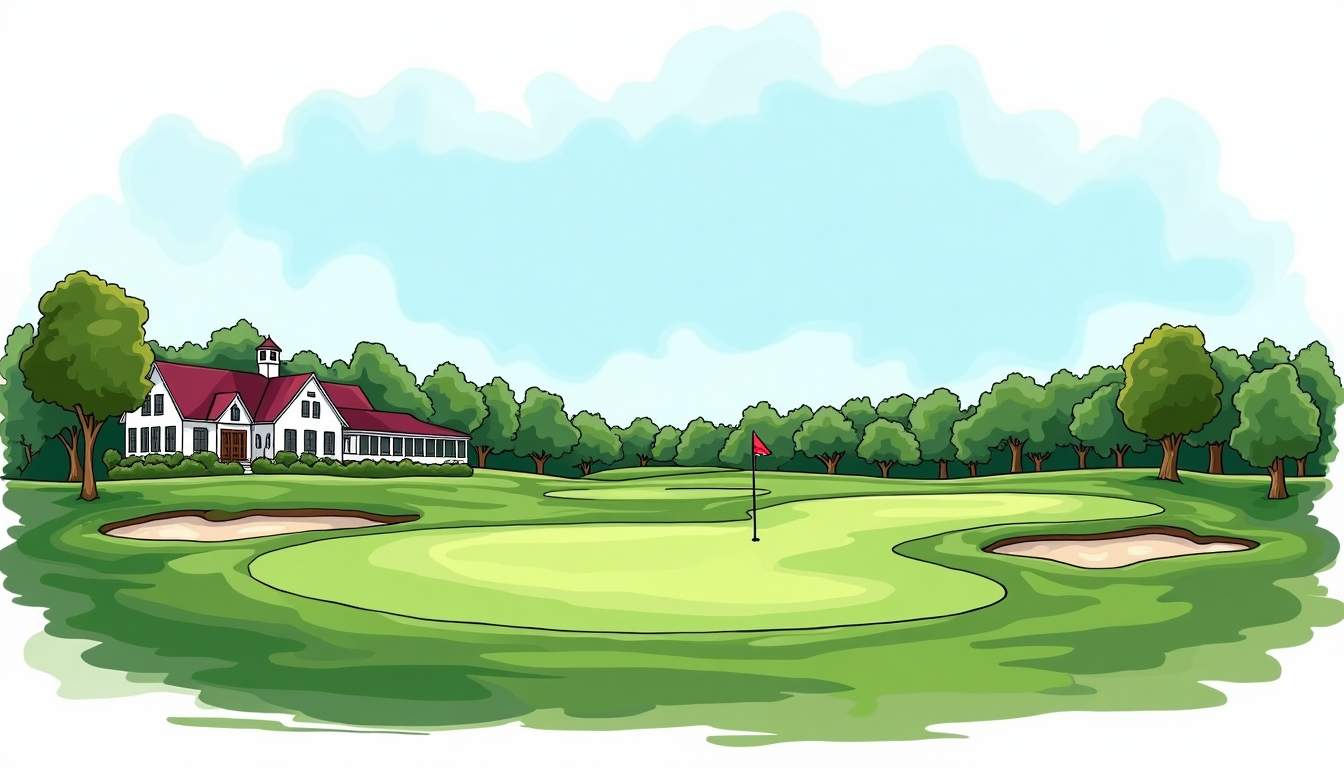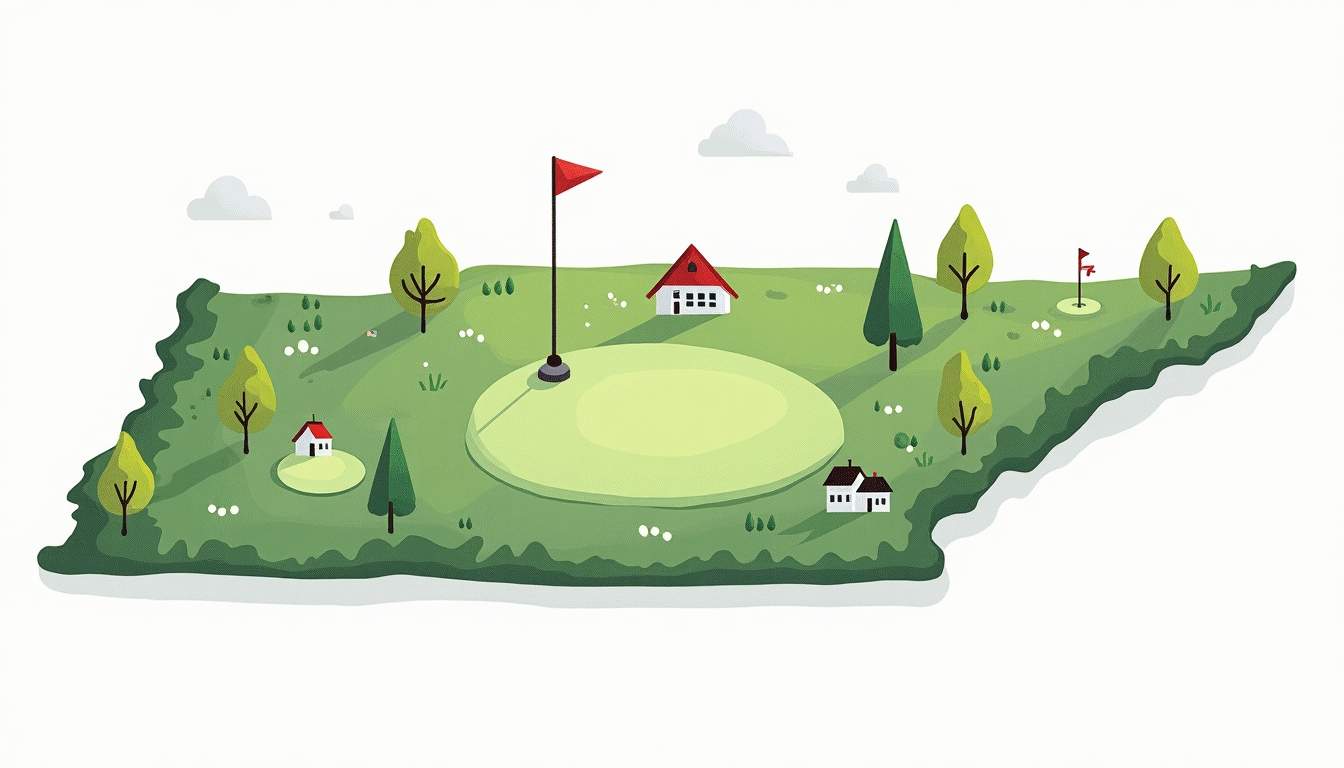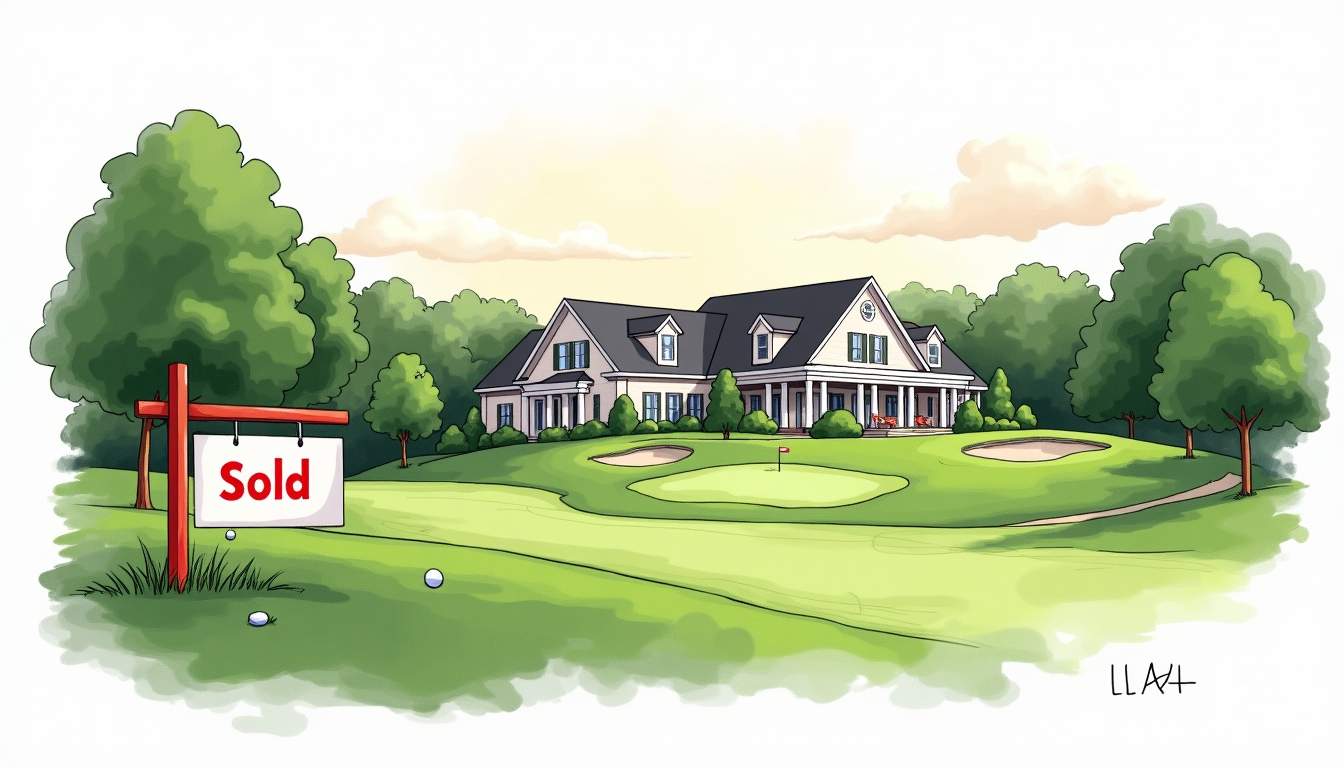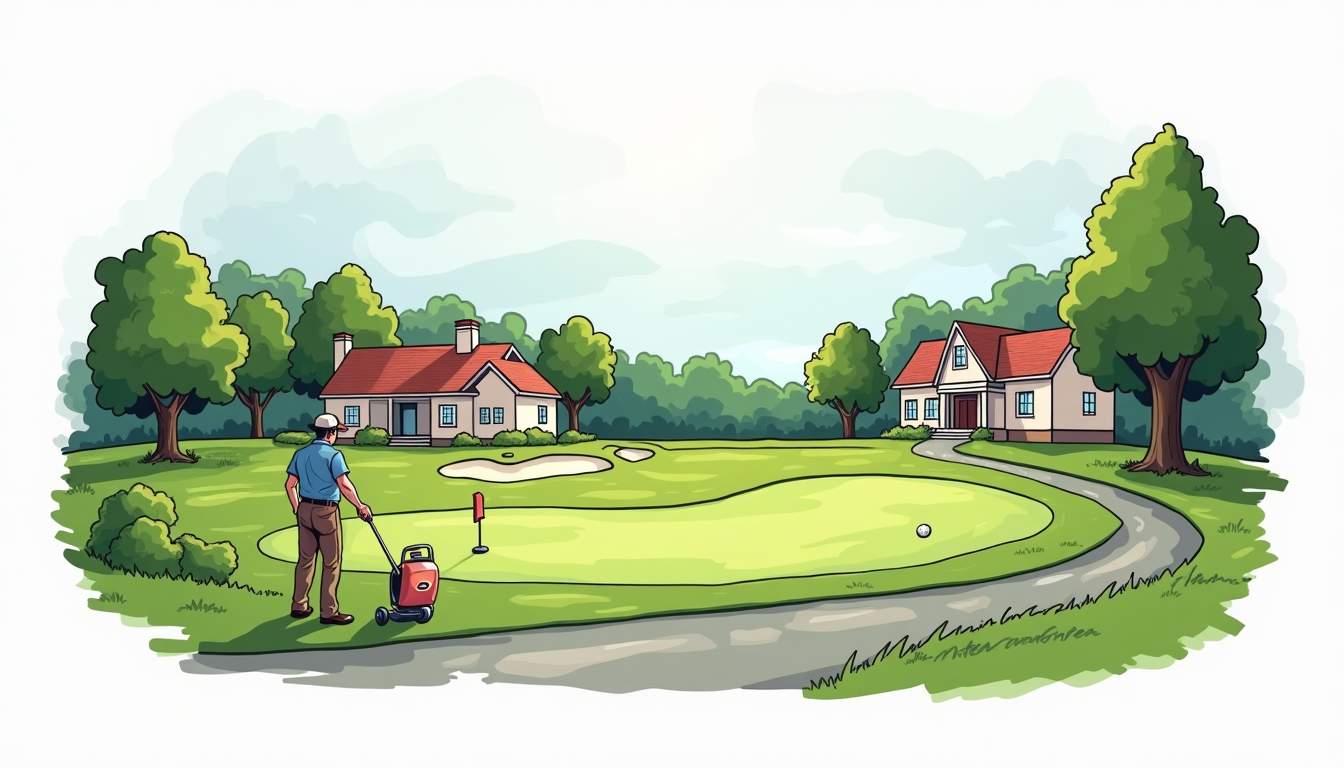
Golf course homes in Tennessee attract buyers seeking scenic views, recreational amenities, and a relaxed lifestyle. From the rolling hills of Middle Tennessee to the mountain vistas of East Tennessee and the lakeside communities in the west, these properties blend outdoor living with potential for good resale value. This guide covers what to look for, common costs and financing considerations, neighborhood dynamics, and practical tips for inspections and negotiations.
Living on or near a golf course offers more than direct access to the fairway. Many developments include walking trails, clubhouses, swimming pools, and social calendars that cater to active and retired residents alike. In Tennessee, temperate seasons make outdoor amenities usable for much of the year, and golf communities often provide a quieter, more landscaped environment compared with typical suburban neighborhoods.
Beyond lifestyle, golf course homes can be a smart investment. Well-maintained courses and strong community management support property values. Additionally, buyers interested in rental income may find demand from vacationers or golfers seeking short-term stays, particularly near resort-style courses or tourist-friendly regions.
Moreover, Tennessee’s diverse geography means that golf course properties can offer stunning views, from rolling hills and lush forests to serene lakes. This scenic backdrop enhances the appeal of these homes, creating a peaceful retreat that changes with the seasons. Communities often host events such as golf tournaments, charity fundraisers, and seasonal festivals, fostering a strong sense of camaraderie among residents.
Prospective homeowners will also appreciate the variety of home styles available within these golf communities, ranging from cozy cottages to expansive custom estates. Many developments prioritize architectural harmony with the natural surroundings, ensuring that new construction complements the landscape and maintains the community’s overall aesthetic appeal. These factors together make golf course living in Tennessee a compelling blend of leisure, beauty, and investment potential.
Detached single-family homes along the course are popular for buyers who prioritize privacy and yard space. These properties often sit on larger lots and may include features tailored to outdoor living such as patios, screened porches, and elevated decks for course views. Maintenance responsibilities typically fall to the homeowner, so budgets should account for lawn care and exterior upkeep.
Many of these homes are designed with large windows and open floor plans to maximize natural light and framed views of the fairways. Some communities offer gated access and additional security features to enhance peace of mind. Proximity to the course often means these properties enjoy quieter streets, as they are tucked away from heavy traffic and commercial areas.
Condos and townhomes can be more affordable entry points into golf communities. Monthly homeowners association (HOA) fees commonly cover exterior maintenance, landscaping, and shared amenities, simplifying ownership. These units appeal to buyers looking for a lock-and-leave lifestyle or reduced responsibility for property care.
These developments also often feature community amenities like clubhouses, fitness centers, and swimming pools, fostering a social atmosphere among residents. Interiors are typically designed to maximize space efficiency, with many offering upgraded finishes and modern appliances to appeal to first-time buyers and retirees alike.
Luxury estates with custom designs and high-end finishes are available in many Tennessee golf communities, especially those tied to private clubs or signature courses. These properties may offer larger lots, private pools, guest houses, and elaborate landscaping. Higher purchase prices often come with more extensive association rules or membership fees tied to club privileges.
Architectural styles vary widely, ranging from traditional Southern plantations to contemporary masterpieces, often incorporating premium materials like hardwood floors, granite countertops, and smart home technology. Many homes boast expansive outdoor living spaces with outdoor kitchens, fire pits, and sport courts, creating private retreats that cater to luxury lifestyles. Additionally, such properties typically provide easy access to exclusive club amenities including dining, spa services, and pro-level golf instruction.
Tennessee’s topography and regional character influence the feel of golf communities. Middle Tennessee communities, such as those near Nashville and Franklin, provide a blend of suburban convenience and rolling countryside. East Tennessee offers mountain-side courses with dramatic elevation changes and cooler summer climates. West Tennessee and areas around the Tennessee River and lakes host golf properties that combine water recreation with course amenities.

Local character matters: some communities emphasize family activities and year-round events, while others cater more to retirees seeking quiet and social clubs. Researching the community calendar, membership options, and seasonal traffic patterns will help match a buyer’s lifestyle to the right location.
HOA fees cover common-area maintenance, landscaping, and use of shared facilities. Membership fees to private clubs often represent a separate and sometimes substantial cost, with initiation charges and monthly dues. Public or semi-private courses may offer more flexible, lower-cost membership structures. Clarify what each fee includes and whether assessments have been levied or are planned for future improvements.
Homes adjacent to fairways may require more frequent landscaping to maintain views and manage turf encroachment. Expect to budget for irrigation, pest control, tree maintenance, and potential erosion mitigation if the property sits on slopes. For waterfront golf properties near lakes or rivers, shoreline upkeep can also add to annual costs.
Insurance premiums can vary depending on location and risk exposures. Properties near water or on slopes may face higher costs. Additionally, homes bordering golf courses occasionally face damage from errant balls; while this is usually minor, verifying whether general homeowner policies cover such incidents is prudent. In some communities, clubs or HOAs carry insurance policies that cover common areas but not individual dwelling repairs.
Financing options are similar to other residential loans, but there are a few specific aspects to consider. Lenders may scrutinize HOA financials and the proportion of non-owner occupied units in a community, as high rental percentages can affect loan approval terms for certain mortgage programs. When purchasing in a private club community, confirm whether membership initiation fees are financed or require upfront payment.

Conventional, FHA, and VA loans are commonly used, though VA approvals sometimes require additional verification that the property meets program requirements. Private lenders and portfolio loans may offer more flexible underwriting for higher-end estates or unique ownership structures. Consulting a mortgage professional experienced in golf community transactions can streamline the process.
Homes adjacent to fairways and greens may be subject to unique wear and environmental factors. Inspectors should assess whether retaining walls, drainage systems, and foundation elements show signs of movement or water intrusion, particularly where landscaping changes course gradients. Proper grading and stormwater management are key to preventing long-term issues.

Golf course landscapes can attract wildlife and insects. Termites, rodents, and burrowing animals can be more prevalent near maintained turf and water features. A thorough pest inspection is important, and buyers should ask sellers for records of pest treatments and any active warranties.
Proximity to fairways raises the possibility of occasional noise from carts, groundskeeping equipment, and recreational activities. Visiting the property during peak and off-peak hours will reveal typical noise levels and player traffic patterns. Pay attention to tee times on weekends and during tournaments if the course hosts events, as these can spike activity and sound.
HOAs often regulate exterior paint colors, landscaping choices, fencing, and even types of outdoor furniture to maintain a cohesive community aesthetic. Some clubs also restrict rental durations or require minimum membership levels for homebuyers. Thoroughly reviewing HOA covenants, conditions, and restrictions (CC&Rs) is essential before making an offer.
Understanding explicit golf etiquette expectations helps avoid conflicts. For example, some communities request that residents avoid placing permanent structures or vegetable gardens in view of the course or require permits for viewpoint enclosures. Clubs typically have rules about after-hours access, guest policies, and conduct in shared spaces; these details influence the lifestyle experience.
Resale values in golf communities depend on course reputation, quality of maintenance, and local real estate market strength. Well-managed, financially stable clubs tend to support steadier property values. Buyers should investigate membership stability, course renovation plans, and any history of foreclosures or developer turnover in the community.
Marketability also hinges on location and unit type. Condos with flexible rental rules near tourist destinations may yield higher short-term rental income, whereas single-family homes with unobstructed views often appeal to long-term buyers and retirees. A conservative approach to estimating rental or resale pricing will reduce the risk of unpleasant surprises.
When making an offer, consider contingencies related to HOA document review, club membership acceptance, and a detailed inspection of course-adjacent elements. Request copies of meeting minutes, reserve studies, and financial statements to identify upcoming assessments or capital projects that could affect ownership costs.
Negotiation strategies may include asking for seller credits for cosmetic updates, starting a bid below asking with room to compromise, or proposing an inspection period that allows for specialized reviews such as irrigation system function or shoreline stability. Be prepared to move quickly in sought-after communities, but always protect the purchase with due diligence contingencies.
Golf course living in Tennessee blends recreational opportunities with scenic surroundings and community amenities. For residents who value social clubs, outdoor pursuits, and well-kept landscapes, these neighborhoods provide a particular quality of life. Engaging with neighbors, attending club events, and participating in community governance can enrich the ownership experience and help maintain property values.
Prospective buyers should balance lifestyle desires against practical factors like fees, maintenance, and resale outlook. Touring multiple communities, comparing different property types, and consulting local real estate professionals will clarify which option best fits financial goals and daily preferences. With thoughtful assessment, a golf course home in Tennessee can be both a rewarding lifestyle choice and a sound long-term investment.
Ready to embrace the golf course lifestyle in a luxury gated community that offers breathtaking scenery and world-class amenities? Tennessee National invites you to explore homes set around a Greg Norman Signature Golf Course, with access to a private marina, waterfront dining, and over 20 exclusive member amenities. Whether you prefer a move-in ready residence or a custom build, our vibrant community provides the perfect setting to enjoy scenic nature trails, social clubs, and year-round events. Schedule a Private Tour today and start making your dream of resort-style living in Tennessee a reality.